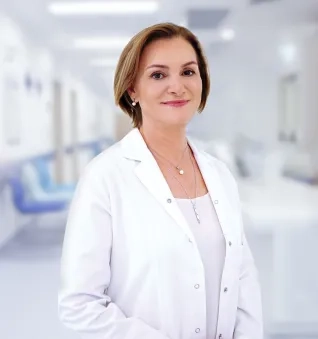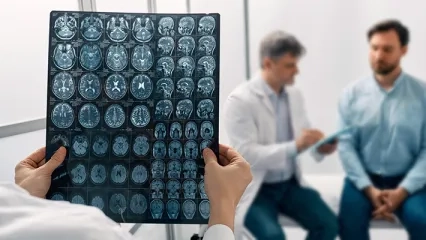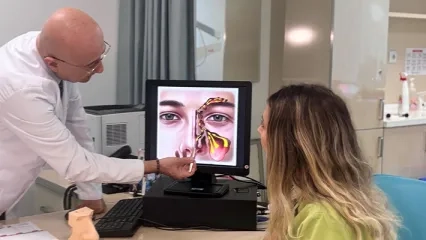Alo Yeditepe
Alo Yeditepe
Medical Microbiology
Yeditepe University Hospitals Medical Microbiology Laboratories; It is one of the leading laboratories in its field with its qualified personnel, advanced technological devices and advanced infrastructure to meet the demands of inpatient treatment, outpatient clinics and emergency units, and provides services in the fields of bacteriology, virology, parasitology, mycology, molecular microbiology and infection immunology.
In the diagnosis and treatment of infectious diseases caused by bacteria, EUCAST "The European Committee on Antimicrobial Susceptibility Testing" standards are followed; analytical reliability of all tests; It is provided on a daily basis with an internal quality control program. External quality controls are carried out with the College of American Pathologists (CAP) and External Quality Assurance Services (EQAS) programs.
Our laboratories, which have been operating at Yeditepe University Kozyatağı Hospital and Yeditepe University Koşuyolu Hospital provide service with a large test panels that are constantly updating.
At the beginning of the COVID-19 pandemic, it became one of the earliest laboratories to apply SARS-CoV-2 PCR (reverse transcriptase–polymerase chain reaction) and SARS-CoV-2 Antibody tests.
Bacteriology Unit
Identification of bacterial pathogens and detection of antibiotic susceptibility; In addition to classical culture methods, the results are supported by fast and reliable additional methods for confirmation and further identification.
By evaluating the stained microscopy of clinical samples during the day, directing the clinician to the diagnosis quickly as well as giving the results of typing and sensitivity with the applied molecular techniques, help to start the treatment as soon as possible.
Mycobacteriology (Tuberculosis) Unit
In our laboratory, samples are accepted for the isolation and identification of acid-fast organisms, including Mycobacterium tuberculosis, Mycobacterium avium complex, and other important mycobacterial pathogens, and acid-fast bacteria stain results are reported the same day. Diagnosis of these pathogens by molecular methods is carried out in our laboratories.
Quantiferon TB Gold test is also applied in our laboratory in the diagnosis of tuberculosis.
Virology Unit
In the field of virology, serological tests for antigens and antibodies are carried out, AIDS and hepatitis agents are detected with fast and sensitive methods, and necessary confirmation tests are applied when necessary.
Parasitology Unit
In the samples sent to our laboratory for parasitology, diagnosis is supported by using serological tests as well as classical methods.
Mycology Unit
In our laboratory, clinically important yeast isolates, dermatophytes and pathogenic molds obtained from clinical samples are identified. In addition to classical methods in the field of mycology, galactomannan antigen test, which is used in the suspicion of aspergillus infection in the follow-up of infection especially in hematology and oncology patients with immunocompromised systems, is also applied in our laboratory.
Molecular Microbiology Unit
In the field of molecular microbiology, hepatitis agents (hepatitis B virus DNA, hepatitis C virus RNA), varicella zoster virus (VZV), Ebstein-Barr virus (EBV DNA), especially cytomegalovirus (CMV DNA), polyoma virus (BK/JC virus) examined after transplantation ) as well as human papilloma virus (HPV DNA) and genotyping, viral load tests are carried out.
MRSA, VRE, Neisseria gonorrhoeae, Chlamydia identifications are made with Real Time PCR techniques in patient samples. In addition, the presence of bacteria, fungi, parasites and viruses in blood cultures, respiratory tract samples, gastrointestinal samples, cerebrospinal fluid (CSF) and joint fluids can be identified within 1 hour with syndromic molecular panel tests, resistance genes can be detected simultaneously, thus contributing to the quickly initiation of treatment.
Our microbiology laboratory, which provides service in a very wide test area, provides 24-hour uninterrupted service within the scope of research, thesis and project.
Our laboratory, which cares about laboratory-clinical cooperation for the diagnosis and treatment of infectious diseases, will continue to advance with new technologies to be a pioneer in its field as a university hospital medical microbiology laboratory.
”
See Also
- COVID-19 New Variant
- What is Parvovirus B19 (Fifth Disease)? What are the Symptoms of Fifth Disease?
- What is Antibiotic Resistance?
- What is the Eris Variant? What are the symptoms of the Eris Variant?
- The Way to Prevent the HIV Pandemic Can Be Made with Awareness
- Covid-19 Variants
- Do Not Run Away From the Vaccine! The Coronavirus Itself Is More Dangerous Than The Side Effects of The Vaccine...
- Are Vaccines Effective Against Delta Plus?
- What Should be Paid Attention to in Face-to-Face Education?
- Why Does Omicron Increase in Children?
- Flu Is Widely Seen This Year
- Attention! Holiday Return Cases May Increase
- Why Do Mosquitoes Bite Some People More?
- How Effective Are Vaccines Against New Variants?
- Rules to be Followed in Shopping Malls
- COVID-19 Vaccination in Children
- Omicron Variant
- What is Monkeypox Virus? What Are the Symptoms of the Monkeypox Virus?
- Symptoms and Treatment of Sepsis
- Is it Necessary to Disinfect Outdoors?
- Can the Coronavirus Be Transmitted Through What We Eat?
- Masks and Gloves Thrown Onto the Street Pose Danger
- Use of Gloves During the Pandemic
- How Should We Clean Mobile Phones?
- Common Misconceptions About Coronavirus
- Frequently Asked Questions About Coronavirus
- Catching Coronavirus
- Frequently Asked Questions About Coronavirus
- Multiple Tests Are Available for COVID-19
Alo Yeditepe











